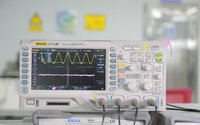Methods and techniques for troubleshooting welding cracks in electronic components
Date:2024-06-14 10:26:06Views:31
Welding is a crucial step in the manufacturing and maintenance process of electronic devices. However, sometimes cracks may appear during the welding process, which can lead to a decrease in equipment performance or even malfunction. Therefore, timely investigation and repair of welding cracks are crucial to ensure the normal operation of the equipment. This article will introduce methods and techniques for troubleshooting welding cracks in electronic components.
Observing the appearance
Firstly, it is very important to conduct a visual inspection of the welding area. Cracks usually appear around solder joints and can be observed with the naked eye or inspected using a magnifying glass to examine the welding area. Cracks may appear in small linear or fractured shapes and require careful observation to ensure they are not overlooked.
Using flaw detection agents
For cracks that are difficult to observe with the naked eye, flaw detection agents can be used for detection. The flaw detection agent can effectively penetrate into the crack and display the location and morphology of the crack under ultraviolet light. This method is very effective for detecting small cracks and can help identify hidden problems.
_20240614102308_432.jpg)
Perform X-ray testing
For some particularly precise welding parts, X-ray inspection may be necessary to identify cracks. X-rays can penetrate metal materials, helping to detect the location and degree of cracks, and can also effectively detect some small cracks.
Hot peel testing
For some welding cracks that require deeper investigation, the use of thermal exfoliation detection method can be considered. This method observes the changes in the welding area by applying heat, and the crack area usually exhibits different thermal expansion characteristics, thereby helping to determine the location and degree of the crack.
Using infrared thermal imaging technology
Infrared thermal imaging technology can help detect the temperature distribution of welding areas, thereby identifying possible cracks. The crack location usually exhibits a different heat distribution from the surrounding area, and infrared thermal imaging technology can quickly locate the crack location.
During the welding process of electronic components, the appearance of cracks may have a serious impact on the performance and reliability of the equipment. Therefore, timely investigation and repair of welding cracks are very important. The methods and techniques introduced in this article can help engineers more effectively identify welding cracks in electronic components, ensuring the normal operation and reliability of equipment.




 Weixin Service
Weixin Service

 DouYin
DouYin
 KuaiShou
KuaiShou




















